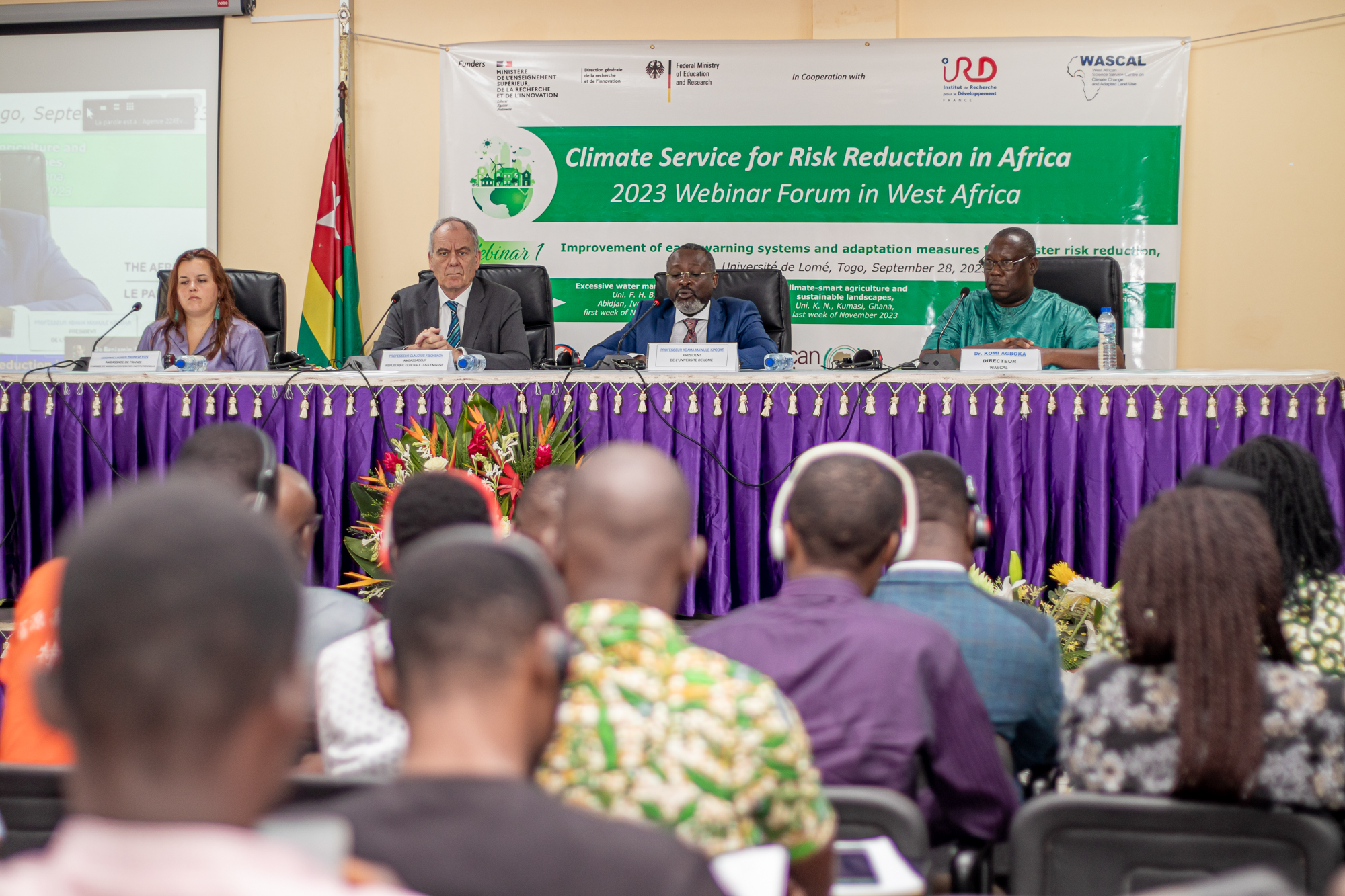
Taking advantage of new digital tools for climate-friendly research and innovation, it was proposed to organize a forum through a series of scientific in-depth webinars (mostly virtual or hybrid) that associated West-African, German and French representatives along common items using the three complementary angles. Those events were based within a number of West African Hubs, involving African Universities/ Research Institutes with African Services/Authorities/Funders and potentially also WASCAL Competence Centre and Graduate Schools as locations.
The overall goals were to:
- strengthen climate resilience in Africa in order to raise awareness about climate knowledge, identify key services for adaptation to climate change and disaster risk reduction;
- examine potential areas for cooperation in research on climate risk management, resilience and adaptation in West Africa and thus defragment the programme landscape in favour of common goals and common impact of funding;
- describe pathways and priorities for research, innovation and capacity development in the area of Climate Services for Risk Reduction that contribute to the new Innovation Agenda between African Union and European Union;
- identify actionable and complementary steps to boost KIC via trilateral or multilateral joint calls or actions (South-South and South-North).
https://www.climate-chance.org/actor/acteurs-de-la-recherche-et-des-sciences/
https://jpi-climate.eu/programme/climate-services-for-risk-reduction-in-west-africa-cs4rra/
